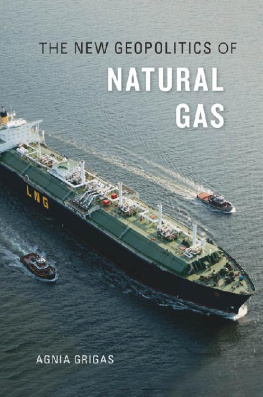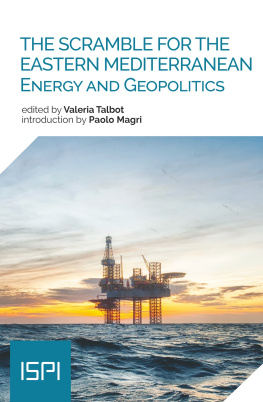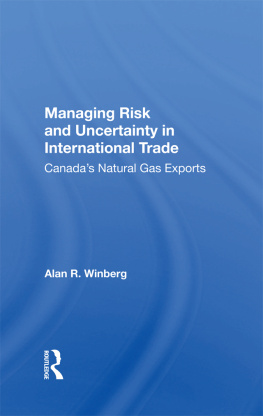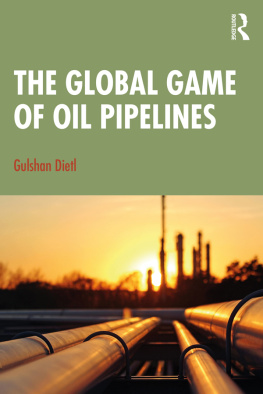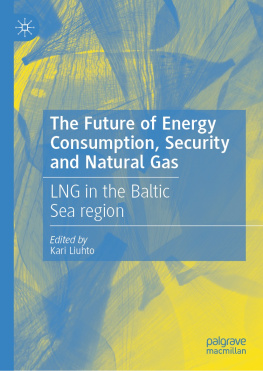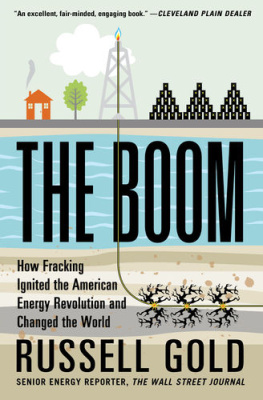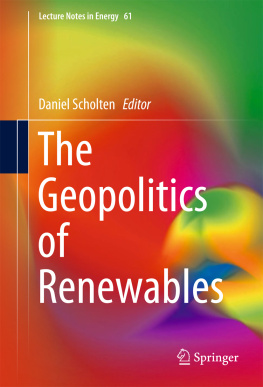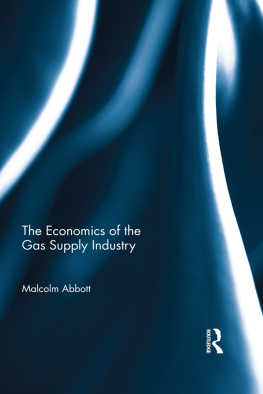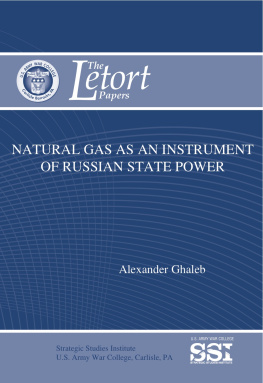Agnia Grigas - The New Geopolitics of Natural Gas
Here you can read online Agnia Grigas - The New Geopolitics of Natural Gas full text of the book (entire story) in english for free. Download pdf and epub, get meaning, cover and reviews about this ebook. year: 2017, publisher: Harvard University Press, genre: Science. Description of the work, (preface) as well as reviews are available. Best literature library LitArk.com created for fans of good reading and offers a wide selection of genres:
Romance novel
Science fiction
Adventure
Detective
Science
History
Home and family
Prose
Art
Politics
Computer
Non-fiction
Religion
Business
Children
Humor
Choose a favorite category and find really read worthwhile books. Enjoy immersion in the world of imagination, feel the emotions of the characters or learn something new for yourself, make an fascinating discovery.
- Book:The New Geopolitics of Natural Gas
- Author:
- Publisher:Harvard University Press
- Genre:
- Year:2017
- Rating:3 / 5
- Favourites:Add to favourites
- Your mark:
The New Geopolitics of Natural Gas: summary, description and annotation
We offer to read an annotation, description, summary or preface (depends on what the author of the book "The New Geopolitics of Natural Gas" wrote himself). If you haven't found the necessary information about the book — write in the comments, we will try to find it.
The boom in shale gas production in the United States, the growth of global LNG trade, and the buildup of gas transport infrastructure worldwide have so transformed the traditional markets that natural gas appears to be on the verge of becoming a true global commodity. Traditional suppliers like Russia, whose energy-poor neighbors were dependent upon its gas exports and pipelines, are feeling the foundations of the old order shifting beneath their feet. Grigas examines how this new reality is rewriting the conventional rules of intercontinental gas trade and realigning strategic relations among the United States, the European Union, Russia, China, and beyond.
In the near term, Moscows political influence will erode as the Russian gas giant Gazprom loses share in its traditional markets while its efforts to pivot eastward to meet Chinas voracious energy needs will largely depend on Beijings terms. In this new geopolitics of gas, the United States will enjoy opportunities but also face challenges in leveraging its newfound energy clout to reshape relations with both European states and rising Asian powers.Agnia Grigas, an expert on global energy markets and a nonresident senior fellow at the Atlantic Council, masterfully explains the geopolitical underpinnings of this gas triangle between Europe, Russia, and the United States in her latest bookGrigas details the major gas players, infrastructure, and the geopolitical tensions over energy supplies. Her book tackles dense issues with clarity and is written in a compelling mannerThe New Geopolitics of Natural Gas should be required reading for those policymakers hoping to understand its implications on policy and the international order.Maria Dugas, NewsweekAs Grigas book ably explains, fracking has had economic and environmental effects that will become more profound over time. So, too, will the geopolitical consequences, as the increasing supply of LNG puts pressure on Qatar, Russia, and other gas exporters and makes it less costly for countries such as China and India to reduce their dependence on coal to meet their growing needs for electricity.Richard N. Cooper, Foreign AffairsThorough and well-cited, this book is a must-read for any student of global energy security, yet it is digestible to readers interested in understanding shifting geopolitics and international affairs.Joel Hicks, Globe PostGrigass book reveals many insights into the often murky world of international natural gas trade. A real contribution to understanding this industry.Guy F. Caruso, Senior Advisor, Energy and National Security Program, Center for Strategic and International StudiesThis book describes with convincing clarity the important changes taking place in the natural gas markets. Readers will welcome Grigass comprehensive analysis of the geopolitical linkages and the transformation of the balance of economic power between supplier and consuming countries that are currently much to the advantage of the United States.John Deutch, Massachusetts Institute of TechnologyA thoroughly persuasive and penetrating investigation of the key political and market forces that transform the global gas sector.Suedeen Kelly, former Commissioner, Federal Energy Regulatory CommissionAt a time when the natural gas business is experiencing fundamental changes and becoming increasingly a global industry, this book provides a comprehensive understanding of all the relationships that have driven the business to where it is today. It also provides the foundation for understanding the future evolution of the industry.Charif Souki, Chairman, Tellurian InvestmentsA penetrating exposition of how globalisation and geopolitical change are transforming the former playbook that allowed monopolists to dominate the gas industry.Jonathan Stern, Distinguished Research Fellow, Natural Gas Research Programme, Oxford Institute for Energy StudiesThe New Geopolitics of Natural Gas is a compelling and well-written study of the multiple revolutions that are transforming the global gas business. With every aspect of natural gassupply, markets, demand, and technologyin motion worldwide, Agnia Grigass book is a timely guide to the geopolitical and strategic consequences.Thane Gustafson, author of Wheel of Fortune: The Battle for Oil and Power in Russia
Agnia Grigas: author's other books
Who wrote The New Geopolitics of Natural Gas? Find out the surname, the name of the author of the book and a list of all author's works by series.

